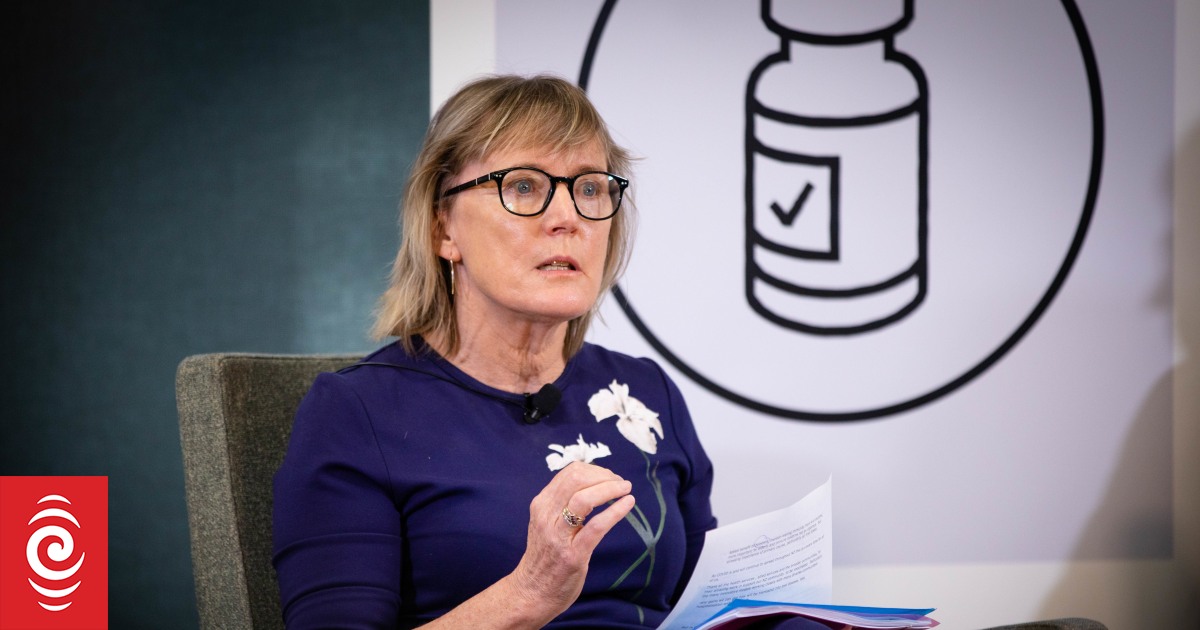Immunisation Advisory Centre medical adviser Professor Nikki Turner says many people are “over” Covid.
Photo: RNZ / Angus Dreaver
New Zealanders not bothering with Covid boosters
Too soon for complacency, doctors warn
People aged 30+ can still get boosters for free
Virus still a killer for older people and those with underlying conditions
Immunity wanes over time
Boosters protect against new variants
Fewer people are bothering to get Covid-19 boosters, which some experts warn could put the population at risk from future strains of the virus.
To date, New Zealanders have had nearly 14 million doses of the vaccine.
Over-65s have the highest uptake of Covid boosters, with more than 70 percent having had at least one – while only about 20 percent of those under 50 are ‘boosted’.
The Immunisation Advisory Centre’s medical adviser Professor Nikki Turner said everyone was “over” Covid, but unfortunately Covid was not over for us.
“Older people and people with significant medical problems, they are still dying of Covid. And we shouldn’t forget that.”
There had been a higher uptake of flu vaccines this year compared with Covid boosters, she said.
That was partly because the flu was a more familiar foe.
“Flu has been with us for a long time and people know the value of flu vaccination.
“With flu, it’s much easier to keep track: beginning of winter, flu’s coming, time to get your flu vaccine.
“With Covid, it’s much harder because it hasn’t yet fallen into a winter peak. So we tend to see around the world now, almost twice a year peaks.”
However, the drop off in booster uptake was also partly because people were just sick of hearing about Covid and wanted it to be over, Turner said.
“Firstly, many people are over it.
“Secondly I think many people are confused about who should be having a booster and why, and I don’t think the information is very clear for people.”
If you are 30 and older – or you have an underlying health problem which puts you at risk of serious illness – boosters are still free.
Turner said with most people now vaccinated and also exposed to the virus, Covid carried little risk for healthy younger people.
“Young children are more at risk of flu than Covid, but in the adult population, the same group of people have the same risk factor of severe Covid as of severe flu.
“I’m hoping there will be a combination vaccine for both flu and Covid in future.”
Antibody levels ‘wane’
Victoria University cellular immunologist Dr Lisa Connor – who heads the Infection and Vaccinology Group at the Malaghan Institute of Medical Research – said vaccines worked by creating antibodies, which “bind” to specific invading viruses or bacteria, stopping their spread.
However, antibody levels could “wane” over time.
“That’s something we’re trying to understand – but we do think some vaccines and some infections will induce shorter lived antibodies, which means they will decrease in our bodies.
“And we have seen that with the Covid vaccines, that you do get this waning, where the antibody levels reduce.”
Boosters built up protection in two main ways, she said.
“Having a booster means we increase the [antibody] levels and also we’ve been updating the boosters to reflect the new variants coming out all the time.”
Boosters keep immune system ‘in training’
Otago University biochemistry professor Kurt Krause.
Photo: Otago University
Otago University biochemistry professor Kurt Krause, who is also an infectious disease physician, said this winter had been better than last year; New Zealand passed the peak for hospitalisations for respiratory illnesses back in June/July.
However, boosters were still necessary to build up the body’s “repertoire of antibodies”.
“And then if you get exposed to it, you’ve got cells that are able to respond to it more quickly. You’re kind of keeping your immune system in training.”
Even for those who were young and healthy, it was “too early to say ‘don’t bother getting boosted’,” he said.
Scientists and doctors did not yet know much about the long-term impacts of Covid, and boosters could help avoid infection and decrease the chances of developing long Covid.
“It’s amazing to me how like clockwork we are still turning out new variants, and we’ve still got around 10 deaths a week and 100 or so people in the hospital.
“There’s always the possibility that, like with flu, a novel mutation could emerge that is more virulent and more dangerous.”
In the week to Sunday, 16 people died of Covid (as either the primary cause or a contributing factor), bringing the total number of deaths since the pandemic began to 4776.
Sign up for Ngā Pitopito Kōrero, a daily newsletter curated by our editors and delivered straight to your inbox every weekday.

